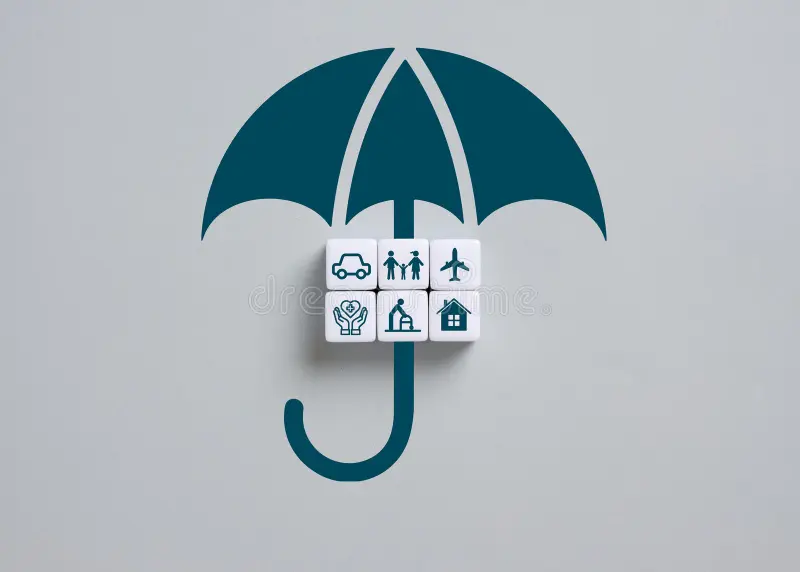The need of having legal protection for online business owners has grown exponentially in the dynamic world of e-commerce. Insurance is often a **legal necessity** due to greater regulation, increasing cyber dangers, and rising customer expectations; it is no longer only a safety net.
To make sure your online store is completely secured and in compliance with any **insurance requirements** that may come your way in 2025, this article will walk you through the steps.
The Importance of Insurance for Online Businesses in the Year 2025
There are hazards associated with online retail, regardless of whether you sell homemade crafts, dropship items, or manage a large Shopify operation:
* Claims arising from advertising or branding concerns* Platform compliance requirements* Disputes over delivery and disruptions to the supply chain* Data breaches and cybercrime
Having insurance protects your shop from potential financial ruin in the event of an accident—and in 2025, it’s typically mandatory, not optional.
1. Online Marketplaces’ Insurance Requirements
**Proof of insurance** is now required to sell on several online marketplaces and platforms:
Amazon (United States)
**Commercial General Liability insurance** with a minimum of $1 million per occurrence is required for sellers with monthly gross income exceeding $10,000. ** An extra insured named “Amazon.com Services LLC” must be included in the policy.
*Walmart Shopping**
Product liability insurance with a minimum of $1 million coverage is mandatory for vendors.
Shopify and Etsy
It is highly recommended that vendors, particularly those dealing in high-risk items, get both product liability and general liability insurance, even if it is not legally mandated.
**Pro tip:** To keep informed, always read the most recent terms of service on your site.
2. All U.S. States and Provinces Must Have Legal Insurance (Canada)
Insurance for internet businesses is not required by any federal legislation in the United States or Canada. However, **some provinces and states may impose this requirement** if:
* You work with people, which means you have to pay for workers’ comp.
You have the following responsibilities: * Possessing or leasing commercial property * Providing services under a professional license * Gathering client data (which triggers cyber liability compliance)
Fines, litigation, or even closures may follow from a company’s inability to adhere to local regulations.
Thirdly, Key Insurance Categories to Meet 2025 Requirements
All internet stores should think about getting the following insurance, many of which are now mandatory or mandated by law:
✅ Insurance for general liability
This policy pays for claims including injuries, property damage, and advertisements. Platforms such as Amazon require it.
Insurance for Products
Shields you from lawsuits filed in the event that your sold product is actually harmful. Especially important for the food, beauty, IT, and toy industries.
* Insurance against Cyber Liability
Protects against cybercrime, ransomware, and online fraud; this is a must-have for any business that wants to stay in compliance with privacy laws like PIPEDA and CCPA.
✅ Insurance for Commercial Real Estate
Safeguards goods kept at a home or warehouse, including shipping supplies and company equipment.
✅ Insurance for employees (in the event that you were to hire them)
Essential for the majority of states in the US and provinces in Canada when hiring new staff.
Company Interruption Coverage
Totally discretionary, but a great way to get your money back should things go dark due to natural catastrophes or hacks.
4. Other Factors to Think About Regarding Law and Insurance
* **Compliance with GDPR and CCPA:** Protecting your customers’ personal information against regulatory fines and the expenses associated with responding to data breaches requires cyber insurance.
Selling on a global scale? That’s what we call **cross-border selling**. Either specific nations or worldwide jurisdictions need to be covered by your policy.
* Agreements with Third-Party Providers: Before doing business with you, some suppliers or manufacturers will ask to see evidence of your liability insurance.
Exclusions for Home-Based Businesses: Keep in mind that the majority of homeowner’s policies do not include coverage for inventory or shipping equipment.
5. Methods for Remaining Compliant in 2025
**Consult an insurance broker** that focuses on e-commerce for advice. **To save money, bundle your policies with a Business Owner’s Policy (BOP). **As your product line, platform, or location changes, regularly review your coverage. **Keep proof of insurance and documentation ready for audits or platform verification.**
Last Reflections
In 2025, having online business insurance isn’t simply a good idea—it’s frequently required by law and contracts. Insurance is an essential for e-commerce enterprises in this age of policy tightening and increased client demands for accountability.
Get your online store in order financially, legally, and in accordance with all insurance regulations. By taking these precautions, you can ensure the safety of your consumers, business associates, and online platforms for the long haul.

Leave a Reply